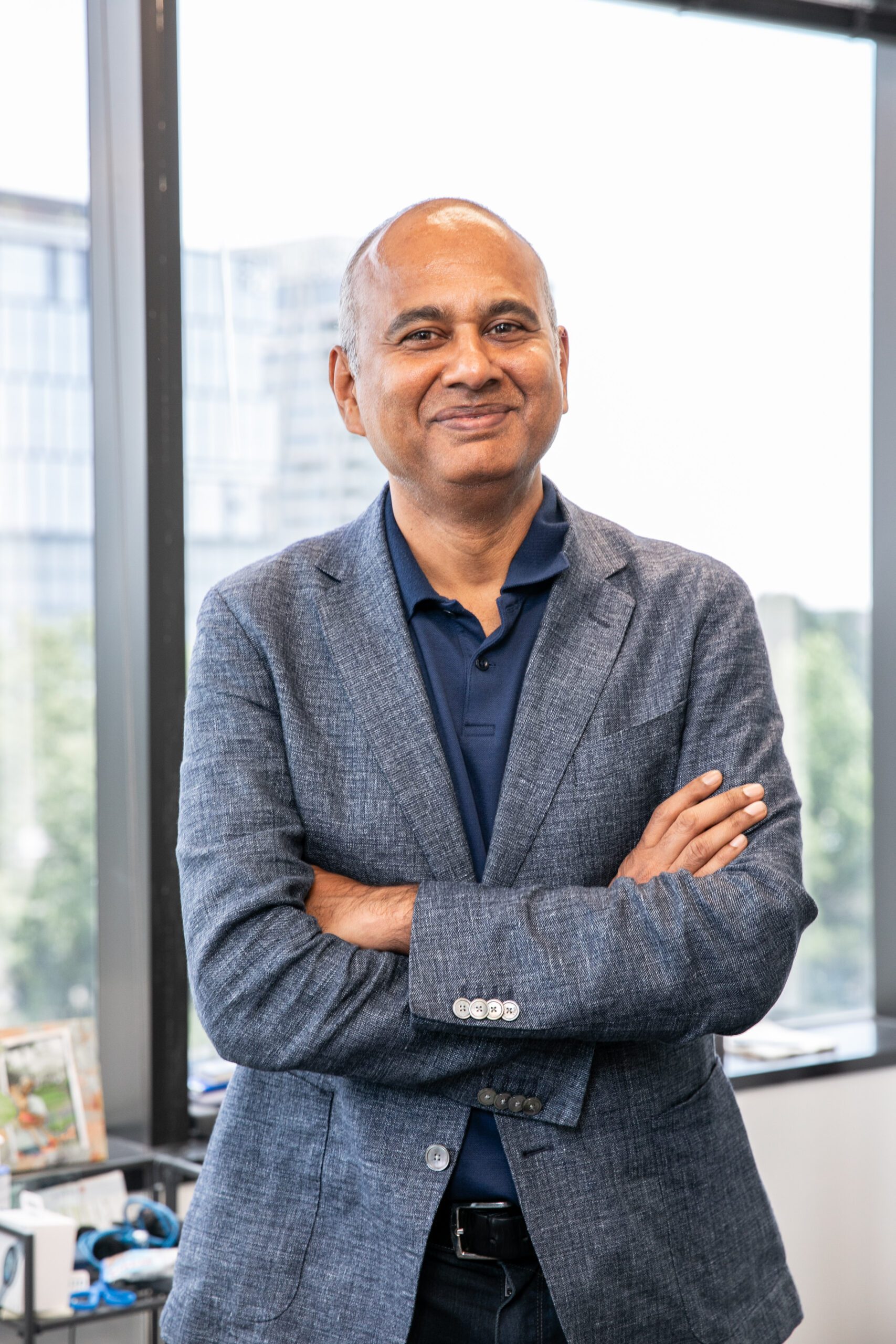
Five months into the launch of WordX and its flagship artificial intelligence-powered proposal writing “co-pilot,” Vishwas Lele is riding the waves of change amid high market demand.
Lele, previously chief technology officer of parent company Applied Information Sciences, is co-founder and CEO of pWin.ai, a spinoff launched from what leaders describe as a “clear market demand” for a product that began as an internal tool and burgeoned into a sought-after capability from AIS’ clients and partners.
“Unlike many tools on the market that essentially act as wrappers around GPT models, pWin.ai streamlines this process,” he said. “Our system eliminates the need for users to write any prompts, automatically generating all necessary prompts based on a ‘vision’ or ‘master artifact’ that you, as a seasoned proposal professional, outline based on your deep understanding of the buyer’s motivations.”
pWin.ai is a highly specialized AI proposal writing co-pilot that builds on the skills and experience proposal professionals have developed for years, Lele said. The company’s exclusive partnership with proposal developer Shipley Associates, enriches the firm’s AI solutions with what Lele describes as “unmatched domain expertise and industry best practices.”
Plus, he said, the company ensures reliability through detailed mapping between RFP requirements and the content generated, “enhancing your probability of winning without compromise.” pWin.ai is dedicated to the principles of responsible AI, Lele said.
“Our approach ensures transparency, including proper citations and warnings about potential hallucinations,” he said. “Security is paramount, grounded in your organization’s core competencies and historical data.”
Moving Forward
Lele is navigating the rapid pace of updates with a priority to propel pWin.ai’s continued evolution, ensuring customers access the cutting edge of AI technology. After all, he said, the goal isn’t only to win bids, but also to empower organizations to thrive in the current landscape.
“The generative AI space is evolving at an exhilarating pace, with a constant stream of updates and breakthroughs,” Lele said. “We’re standing at the dawn of a new technological era, and history has shown that such shifts profoundly impact industries. Companies that swiftly adapt reap rewards, while those lagging behind face consequences.”
What excites Lele most about this new era?
“It’s witnessing how organizations seamlessly integrate AI into their workflows,” he said. “It’s no longer a matter of ‘Should we?’ but rather, ‘How fast and effectively can we?’”
‘Strategic Response to a Clear Market Opportunity’
Lele co-founded pWin.ai after 30 years at AIS where his team continuously adapted to technological innovations.
“The decision to leave and co-found pWin.ai was both challenging and exhilarating,” he said. “AIS had evolved from a mainframe migration firm to a leader in .NET, SharePoint, cloud and data technologies.”
The culture of innovation led to AIS exploring Azure OpenAI shortly after its release in January 2023, he said. At that time, leaders quickly realized the potential of a co-pilot tool for proposal writers and developed a minimum viable product.
It was initially intended for internal use. But the feedback was so strong with various companies they engaged with that they soon realized its broader market potential. Additionally, several MVP pilot users transitioned to paying customers, including the Microsoft Global Proposal Center of Excellence, signaling the right moment to launch pWin.ai as a standalone entity dedicated to the solution, he said.
“This venture wasn’t just a career shift,” Lele said. “It was a strategic response to a clear market opportunity, leveraging our expertise to fill a significant niche in the tech industry.”
The scope for continued development of the solution is massive, he said, and there are exciting updates in the works.
“In addition to the power of pWin.ai, an equally important ingredient for success is the overall planning around change management as it relates to generative AI,” Lele said. “How do you change your existing processes for capture and proposal planning in the context of generative AI? How do you assess your organization’s readiness for a given RFP? How do you continue to optimize content within the Knowledge Repository? If you’re interested in these topics and more, we encourage you to watch the pWin.ai + Shipley webinar series, which delves into these subjects.”
From Electrical Engineer to Software Developer
After 35 years in the industry, Lele believes the most important challenge in IT is adapting to the advancing pace of change. He advises leaning into new experiences and challenges and focusing first on why the new technology could be helpful. Once the “why” is established, have the discipline to get into the “what” and “how” — even if it means dedicating time outside of your day job, he said.
Lele became interested in programming during high school, but after difficulty getting into a computer science program, he turned to electrical engineering, earning his degree from Nagpur University in India. He would later return to earn a master’s in computer science from The Johns Hopkins University.
Lele and his wife, Swapna, started their engineering careers at the same time. Together, they have two daughters — Sheoli, 20; and Shreya, 16. When he isn’t at work, Lele enjoys walking, public policy debates and creating video learning content.

